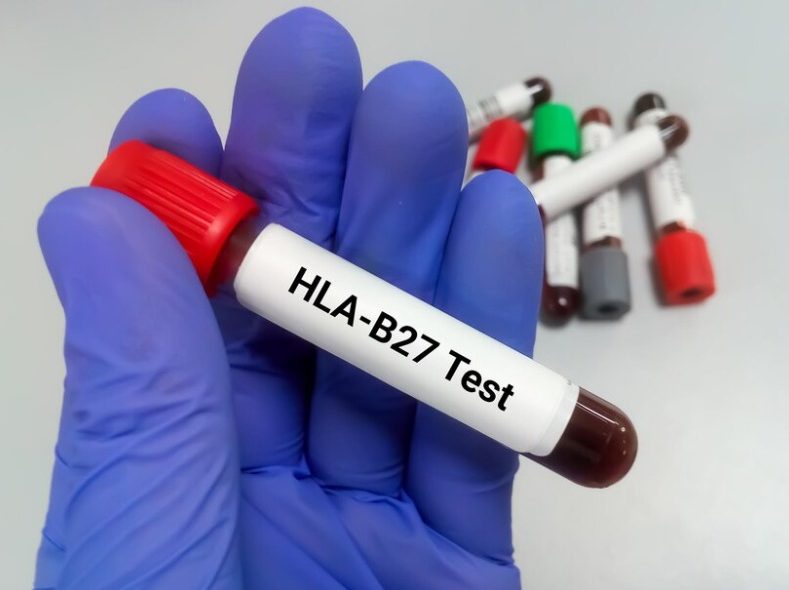The HLA B27 test is a specialized blood test that checks for the presence of the Human Leukocyte Antigen B27 protein on white blood cells. While this protein helps the immune system differentiate between healthy and harmful cells, its presence is often associated with a higher risk of certain autoimmune disorders. The test plays an important role in diagnosing conditions that primarily affect the joints, spine, and eyes.
What is HLA-B27?
HLA-B27 is a genetic marker found in some individuals. While it is not a disease itself, it is strongly linked to a group of autoimmune disorders known as seronegative spondyloarthropathies. People with HLA-B27 are more likely to develop conditions such as:
-
Ankylosing Spondylitis
-
Reactive Arthritis
-
Psoriatic Arthritis
-
Juvenile Idiopathic Arthritis
-
Anterior Uveitis (eye inflammation)
Having the HLA-B27 gene does not guarantee the development of these conditions, but it significantly increases the risk, especially when accompanied by related symptoms.
Why is the HLA B27 Test Done?
Doctors may recommend an HLA B27 test if you present with unexplained symptoms such as:
-
Chronic lower back pain or stiffness
-
Joint inflammation, particularly in the hips, knees, or spine
-
Eye pain or redness due to recurrent uveitis
-
A family history of autoimmune joint disorders
-
Signs of reactive arthritis following infections
The test supports the clinical diagnosis of autoimmune diseases and helps rule out other possible causes of inflammation or pain.
How is the Test Performed?
The HLA B27 test is a simple blood test. Here’s how it works:
-
A healthcare professional collects a blood sample from a vein in your arm.
-
The sample is sent to a lab for HLA typing.
-
No special preparation (like fasting) is usually required.
-
Results are typically available within 3–7 business days.
The test looks for the genetic presence of the HLA-B27 antigen using flow cytometry or PCR-based techniques.
Understanding the Results
-
Positive Result: Indicates that the HLA-B27 antigen is present. This suggests a genetic predisposition to autoimmune conditions. However, many people with HLA-B27 remain healthy throughout life.
-
Negative Result: Means the antigen is not detected. While this reduces the likelihood of HLA-B27-associated diseases, it does not eliminate the possibility entirely.
Your doctor will evaluate the results in the context of your symptoms, medical history, and other lab findings for an accurate diagnosis.
Cost of HLA B27 Test in India
In India, the HLA B27 test typically costs between ₹1,500 and ₹3,500, depending on the city and diagnostic center. Leading providers like:
-
Redcliffe Labs
-
Dr. Lal PathLabs
-
Thyrocare
-
SRL Diagnostics
-
Metropolis Healthcare
offer reliable testing, often with home sample collection and online report access.
Final Thoughts
The HLA B27 test is a valuable tool in detecting autoimmune risk factors and guiding early diagnosis. If you’re experiencing chronic joint pain, back stiffness, or recurring eye inflammation, speak with your doctor about getting tested. Early detection leads to more effective management and better quality of life.
 :
https://in.pinterest.com/redcliffelabsss/
:
https://in.pinterest.com/redcliffelabsss/












